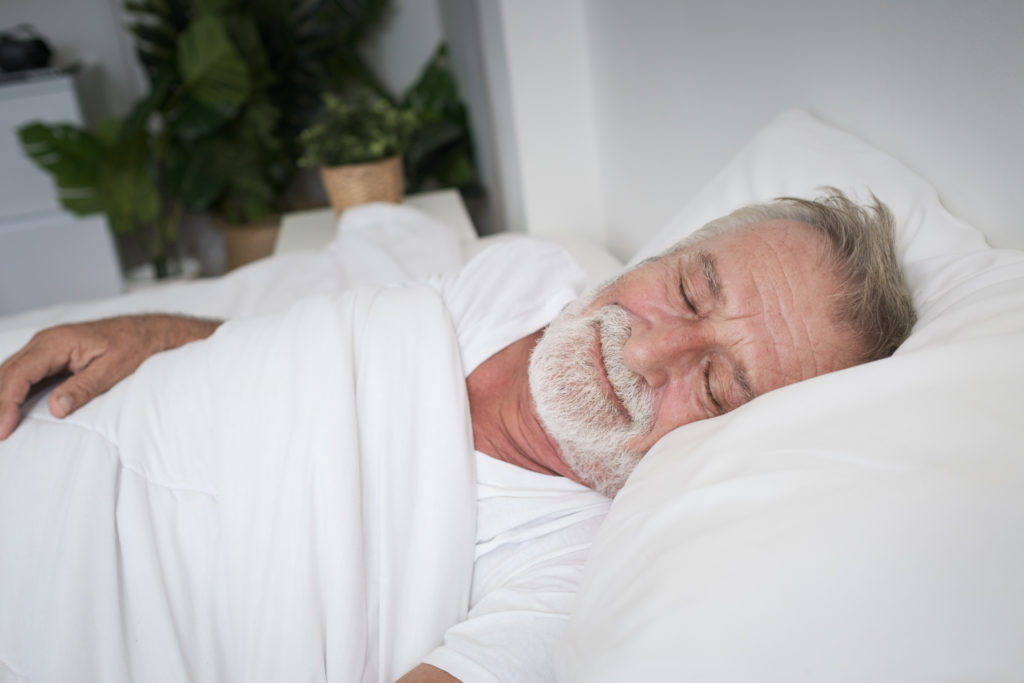Sleep for Adults: Get Your ZZZZS

Sleep is both restorative and unfortunately, at times, elusive. But how important is sleep for adults’ health and well-being? Several studies would suggest very. Sleep gives us much needed rest from physical activity and provides our brain with time to establish new memories and learning. In contrast, lack of sleep leads to decreased alertness and irritability. It decreases physical performance and response time, impairs concentration and memory. The greater the lack of sleep, the more impaired these functions become. So how do we improve the amount and quality of sleep?
Take a Pill
Although this would be the easiest and quickest route, it is not always the best. Most sleeping pills are not meant to be used long term, meaning not beyond four to eight weeks. Sleeping pills can have undesirable side effects and further impair physical performance and cognitive function. Frequently reported side effects include drowsiness, lightheadedness, impaired thinking and poor reaction time. There is also the risk of interactions between sleeping pills and other prescription drugs, and certainly with alcohol use.
Fortunately there are non-drug remedies that have been proven to improve sleep. Some we have heard many times, such as, avoiding caffeine and getting more exercise. Others, such as the following take time and are best used together. They have been shown to be safe, effective and long lasting. But they take time and effort.
Improve sleep for adults by establishing a daytime routine
Activities in your daily routine can affect your sleep for good or for worse. Three of these are exercise, diet and sunlight.
Exercise
Regular exercise improves our energy, weight control, mental health and longevity. Regular daily exercise also helps us sleep better. Exercise uses up energy, regulates our body temperature and produces endorphins, those feel-good hormones, all of which lead to better sleep. Participating in both aerobic exercise and strength training promotes both better health and sleep. Make it a goal to exercise five to seven times per week, for 30 to 60 minutes per day. Studies have shown that the timing of exercise is very individual. For some people it is better to exercise earlier in the day so as to not have difficulty sleeping. For others, exercise right before bedtime is relaxing and facilitates sleep. Do what works best for you.
Diet
Mind what you eat and drink. Caffeine is often used to promote wakefulness or alertness. It reportedly does so by blocking a natural chemical in your body that builds up during the day and facilitates sleepiness at night. However, research regarding this is inconclusive. Some studies have shown that there is little or no real association between caffeine intake and subsequent insomnia. It is may be that some people are more sensitive to the effects of caffeine than others. It is worth limiting your coffee, tea and soda to earlier in the day to see if you sleep better at night.
Alcohol is another sleep disrupter for adults. Although you may fall asleep more quickly, you may not remain asleep. Again, no clear cut distinctions have been proven, but it is worth avoiding alcohol if you notice it affects your ability to sleep through the night.
Daylight
Light exposure influences circadian rhythms. The more light in your environment, the more awake you are. When our surroundings are dark, our bodies produce melatonin which makes us sleepy. Try to get sunlight during the say to set your circadian rhythm and promote sleep.
Develop Sleep Inducing Habits
Create sleep routines. Try to go to bed and get up at the same time each day including weekends and holidays. This helps establish your sleep-wake cycle to promote better sleep. Add to this relaxing activities to transition your body from wakefulness to sleep. Activates can include taking a warm shower, reading a book, listening to relaxing music with low light or meditating. If you worry about something, write it down to deal with it the next day.
Prioritizing your bedroom can improve sleep for adults (and children). Eliminate from your bedroom non sleep activities such as eating in bed, using electronic devices, answering emails or watching TV. Screen time alone may interfere with sleep. Make your bedroom conducive to sleep – cool, dark and quiet. Not to mention a comfortable mattress. Go to bed when you feel sleepy. If you do not fall asleep within 20 minutes, get up and do something that is relaxing. Be sure to avoid stimulating activities such as using electronic devices, cleaning the house or eating. You cannot force sleep, but you do not want to increase wakefulness.
With a bit of persistence and effort, sleep will not be so elusive and a restful night will be something to look forward to again. If you want more information about sleep, check out the Sleep Foundation. To learn about how poor sleep can affect your kids, check out this blog. And stay tuned for Part 2, an updated blog about sleep and children.
